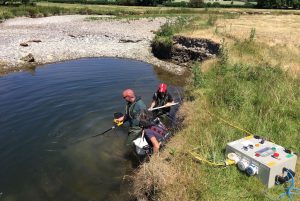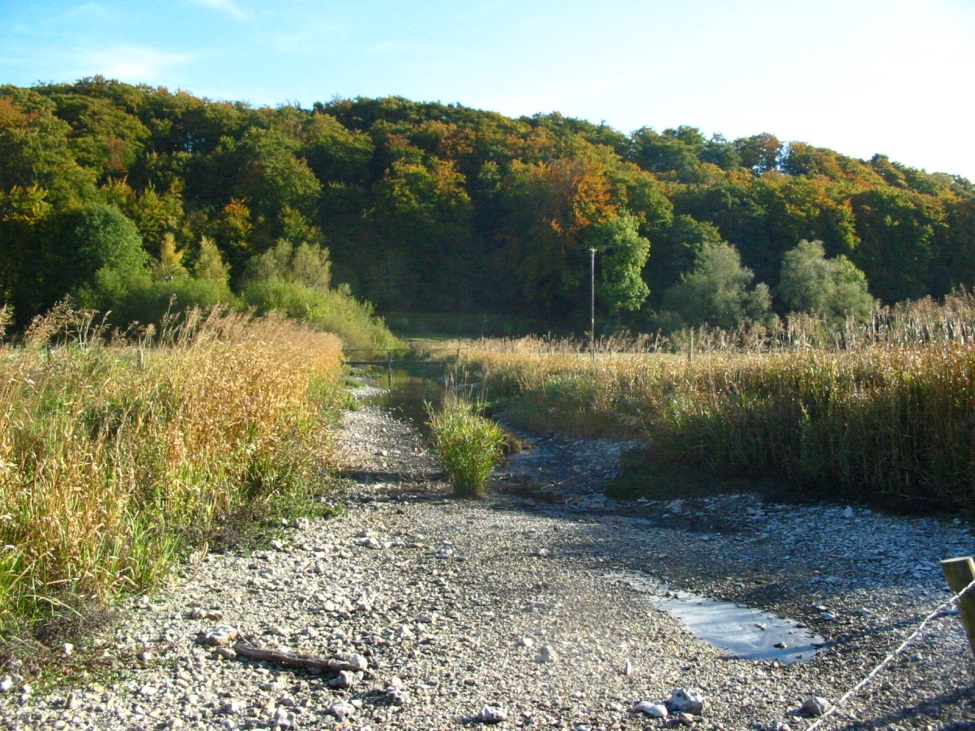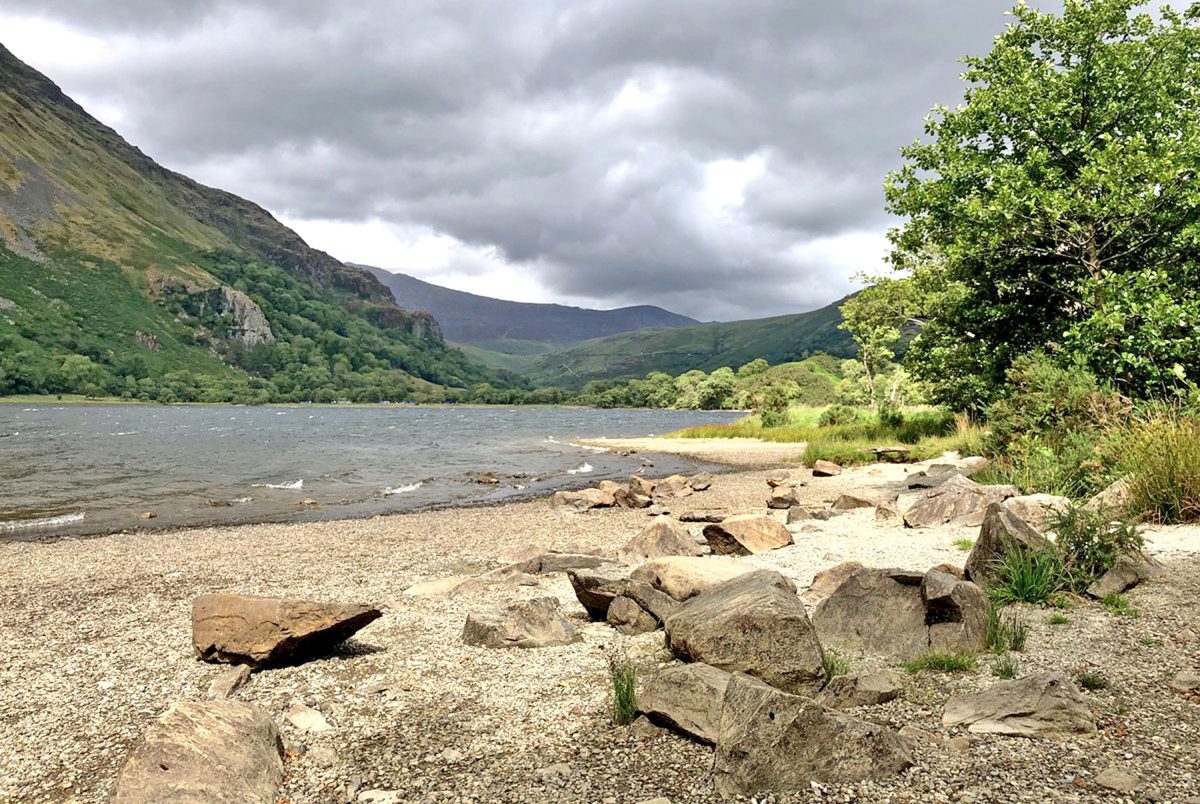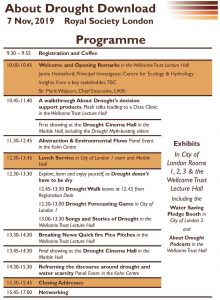Groundwater plays an important role in water supply in the UK, both for agriculture and irrigation and for public supply. It provides around 30 per cent of public water supplies accross the UK, and sustains flows in rivers and wetlands during dry conditions. The British Geological Survey’s John Bloomfield and Andrew McKenzie explore the affect of the drought in groundwater in 2022.
Tag: groundwater
Groundwater management during droughts and future prospects
A new publication has been released today which explores how our essential groundwater resources are managed during droughts, and against a backdrop of environmental change, what future priorities should be.
The work reports the outputs from a meeting over 50 hydrogeologists from water companies, regulators, consultancies and academia that was held by About Drought in July 2019 in Birmingham. The aim of the meeting was to consider current groundwater drought management practices and identity research needs.
Four key themes are discussed throughout the paper:
- Joined up definitions of drought
- Enhanced monitoring
- Improved modelling of groundwater during droughts
- Better information sharing
“Managing groundwater supplies subject to drought: perspectives on current status and future priorities from England (UK)” has been published in Hydrogeology Journal and is available to all now.
Jamie Hannaford, Principal Hydrologist, Centre for Ecology & Hydrology
Early warning forecasts – a real success story!
“Since September 2018 we have been providing bespoke hydrological forecasts for the Environment Agency’s area teams based on their reasonable worst-case scenarios and stress test scenarios … it is a real success story.”
Jamie Hannaford, Principal Hydrologist, Centre for Ecology & Hydrology
A key need addressed by About Drought has been improved access to early warning information, especially for hydrological forecasting.
Since 2013 a Hydrological Outlook had been provided by the UK Centre for Ecology & Hydrology (UKCEH), the Met Office and BGS, producing a static document that gives a 1-page summary for the UK as a whole, followed by regional and national information. But that did not allow users to access a forecast for the particular river in the UK that they were interested in.
Under About Drought that has become possible. Our project IMPETUS aimed to improve drought forecasting for decision-makers, building on information gathered at a host of stakeholder workshops to establish current practices and their needs across water supply, health, power, agriculture, navigation and recreation.
New insight into likely river flows 3 months ahead
It developed a new methodology of forecasting and the follow-on project ENDOWS gave researchers the opportunity to develop IMPETUS’ methods. Now an insight into hydrological conditions over the coming three months, with likely trajectories for flows in 300 rivers around the UK and groundwater levels is available.
Jamie Hannaford, ENDOWS’ Principal Investigator and Principal Hydrologist at UKCEH, says: “The science was done in IMPETUS. We tested the methods, validating them to see how reliable and accurate they are around the country and at different times of the year.
“Then in ENDOWS we opened up the forecasts and operationalised that system to the extent that these hydrological forecasts are now available in the first few days of every month.
Since the summer of 2018 we have worked with a very wide range of stakeholders, providing them with forecasts for the river catchments that are relevant and ensuring that they meet user needs. In last summer’s drought conditions when many stakeholders needed reliable information about what would happen next, they have told us that these forecasts were very useful.”
Bespoke forecasts for EA and Yorkshire Water
The forecasts have been provided to a wide range of users, including water companies, the Environment Agency (EA), Natural Resources Wales, the Scottish Environment Protection Agency, the National Farmers’ Union, energy industry and the Canal & River Trust.
Jamie adds: “Since September 2018 we have also been providing bespoke hydrological forecasts for the Environment Agency’s area teams based on their reasonable worst-case scenarios and stress test scenarios. They have been used internally and for National Drought Group briefings – it is a real success story.
“In the dry spell of Summer 2018 we started providing hydrological outlooks to Yorkshire Water who wanted to specifically look at the likelihood of reaching certain flow thresholds for their internal management, and we came up with a bespoke outlook for them.
“These are just two examples that illustrate the benefit of having the extra ENDOWS knowledge exchange and synthesis funding for the programme. It has enabled the excellent science from IMPETUS to fulfil its potential, it gave researchers the time to hear directly from stakeholders how it could be used, to refine our outputs to make them user-friendly, for example through data visualisation.
“We listened and as a result they were able to use them to access better information in a live situation in the 2018 drought. Users said they were pleased to see that this project produced such useful information, and that there is a pathway for this science to be continued after ENDOWS, through the Hydrological Outlook.”
Published October 2019
Paul Crockett, Principal Officer, National Water Resources Planning Framework, Environment Agency
Informing the water industry & Environment Agency
“About Drought has informed the water industry, now we need some sort of mechanism to identify the most useful outputs from strategic to operational products. We must not let those fall through a crack now that About Drought has finished.”
Paul Crockett, Principal Officer, Environment Agency

“About Drought has helped generate a step change in thinking around what is possible and what can be done, and over the next 10 years or so we will be making better decisions, using better tools because of it,” says Paul Crockett who is leading the modelling work on the National Water Resources Planning Framework for the Environment Agency.
Yet Paul, who has worked closely with the MaRIUS project and About Drought (ENDOWS), believes there is still more to be done in encouraging the water industry to catch up with the latest outcomes of the programme’s data and tools.
Real-time decision-making support for the water industry
About Drought has supported the water industry in both strategic planning and real-time decision-making during a time when it has come under pressure to collaborate across water company boundaries on regional forward planning, as well as approaches to dealing with issues as they arise with a greater level of accountability.
MaRIUS and ENDOWS have held a series of workshop events specifically for the industry, working alongside key stakeholders to match its research to their needs.
With the National Water Resources Planning Framework driving water companies to work together to build resilience into water management with clear, joined-up direction from Government departments, agencies and water regulators, the industry is now more ready to be receptive, Paul feels.
He says: “There are a lot of great products from MaRIUS and About Drought but the water industry – the customer, if you like – is only just seeing the potential.”
Improving the industry’s understanding of statistics
Historic Droughts’ work in reconstructing reliable rainfall, river flow and groundwater data back to 1890, as well as providing standardised drought indices has been important in putting events into context, improving the industry’s understanding of statistics, the latest methodologies and stakeholder needs. There is still more to be done in migrating data from the academic models to those the water companies use.
The water resource model developed by MaRIUS is being adopted for use by Paul’s team, to help the National Water Resources Planning Framework assess the potential effects of different types of drought and climate change impacts at a national scale, and test management strategies.
Giving the water industry better knowledge and insights
Paul’s concern is that with the impacts of climate change starting to be felt on the reliability of water availability, it is the wrong time to bring About Drought to an end. He says: “It’s so important to have About Drought following on from the original research projects; it demonstrated what is possible, the better knowledge and insight we can get from the information that decisions will be based on in the future. The team really helped to educate the industry rather than just educating other academics.
“We need to look at the tools we can use to take it even further forward now that the industry is starting to buy into it more.
“About Drought has informed the water industry, now we need some sort of mechanism to identify the most useful outputs from strategic to operational products. We must not let those fall through a crack now that About Drought has finished.
“About Drought is to be applauded for what it has done but it needs more time and resources if it is to maximise the outcome for UK plc of all this research.”
Interview by Sally Stevens
Posted October 2019
About Drought Download Nov 7th
All the data, all the learnings, all the resources, all in one place!
Thursday, November 7, 2019 from 10 am to 3.30 pm
Location: The Royal Society, London, SW1Y 5AG
Registration: via Eventbrite – free to attend but spaces are limited (note that registration closes on the 23rd of October)
Programme: draft programme (PDF)
About Drought Download is the final event of the 5-year UK Drought and Water Scarcity Research Programme, showcasing the difference our work is already making. Register via Eventbrite – there is no charge for this event, but registration is necessary and spaces are limited. Please note that registration closes on the 23rd of October.
See the draft programme, so you can plan to attend this accessible, stimulating day. The event is aimed at decision-makers in water supply, the energy industry, policy, business, environment, agriculture or the public sector. Visitors can engage with hands-on multi-disciplinary programme outputs, listen to and question programme experts in a wide range of drought-related fields, network with people working on drought, and meet users of the outputs from the programme.
- How is climate change affecting water supply in the UK?
- What does it mean for policy and industry?
- What forecasting breakthroughs have been made & how are these already being used?
- How can we protect the UK’s natural landscape from water shortage?



